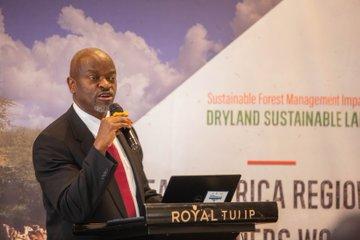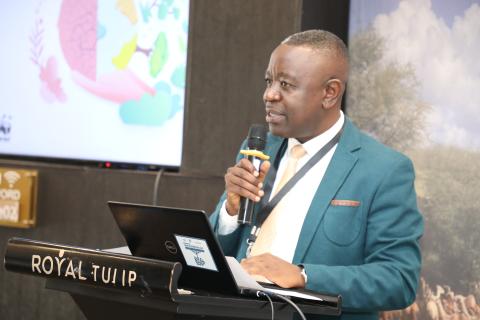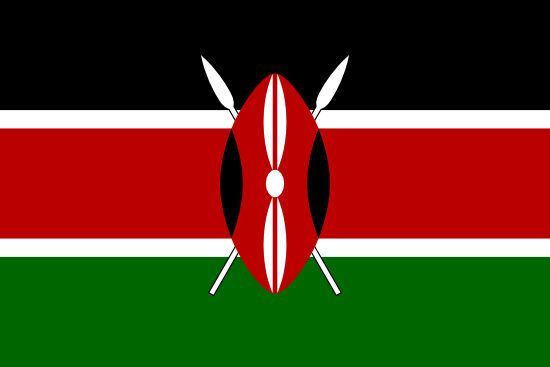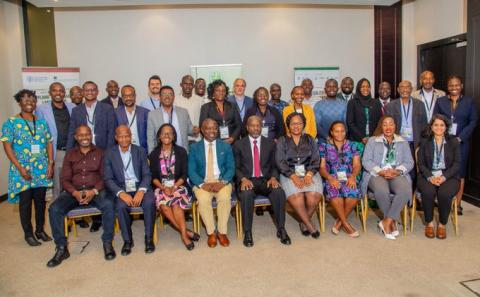GEF-7 Dryland Sustainable Landscapes Impact Programme (DSL-IP)
The GEF-7 Dryland Sustainable Landscapes Impact Program (DSL-IP) funded by the Global Environment Facility (GEF) is led by the Food and Agriculture Organization of the United Nations (FAO), and co-executed with IUCN and the World Overview of Conservation Approaches and Technologies (WOCAT). The objective of the DSL-IP is to avoid, reduce, and reverse further degradation, desertification, and deforestation of land and ecosystems in drylands, through the sustainable management of production landscapes. The project is being implemented by NEMA in close coordination with the International Union for the Conservation of Nature (IUCN) and other partners in Narok and Kajiado Counties.

Drylands cover 41% of the earth’s land surface and is home to approximately 2 billion people -these includes savannahs, woodlands, grasslands, semi-deserts and deserts . While opening the GEF-7 Dryland Sustainable Landscapes Impact Programme (DSL-IP) 3 days-East Africa regional stakeholders’ workshop, the NEMA Director for Compliance, David Ong’are stated that drylands have continued to expand due high levels of degradation as a result of land conversion, over-exploitation of ecosystems resources, changing forest fires regimes, introduction of non-native species, water pollution, and long-term impacts of climate change. He however noted that, “The sustainable management of drylands will help improve biodiversity conservation, food security, economic development, livelihoods and human wellbeing.”

Speaking during the workshop opening ceremony, Mr. Charles Oluchina, the IUCN Regional Coordinator for East Africa highlighted that 70% of the ecosystem in the region is characterized by dry rangelands, low rainfall and grasslands. He further noted that it is only in the tropics where you find green belts. “This project will add value to the global systems to address advancement of climate change through various interventions", Mr. Oluchina stressed. This regional workshop will focus on East Africa region including a country project in Kenya. It will gather the Kenya DSL-IP country project management unit (PMU), representatives from governments of countries in East Africa, national and international implementing partners to take stock of lessons learnt across the eco-region (grasslands and savannahs), share experiences and provide ideas to accelerate sustainable range land management in East Africa. The workshop will contribute to strengthen the regional dialogue under the IGAD, and EAC on the value of drylands and rangelands and the opportunities that they provide to contribute to sustainable development goals and achieving land degradation neutrality.

